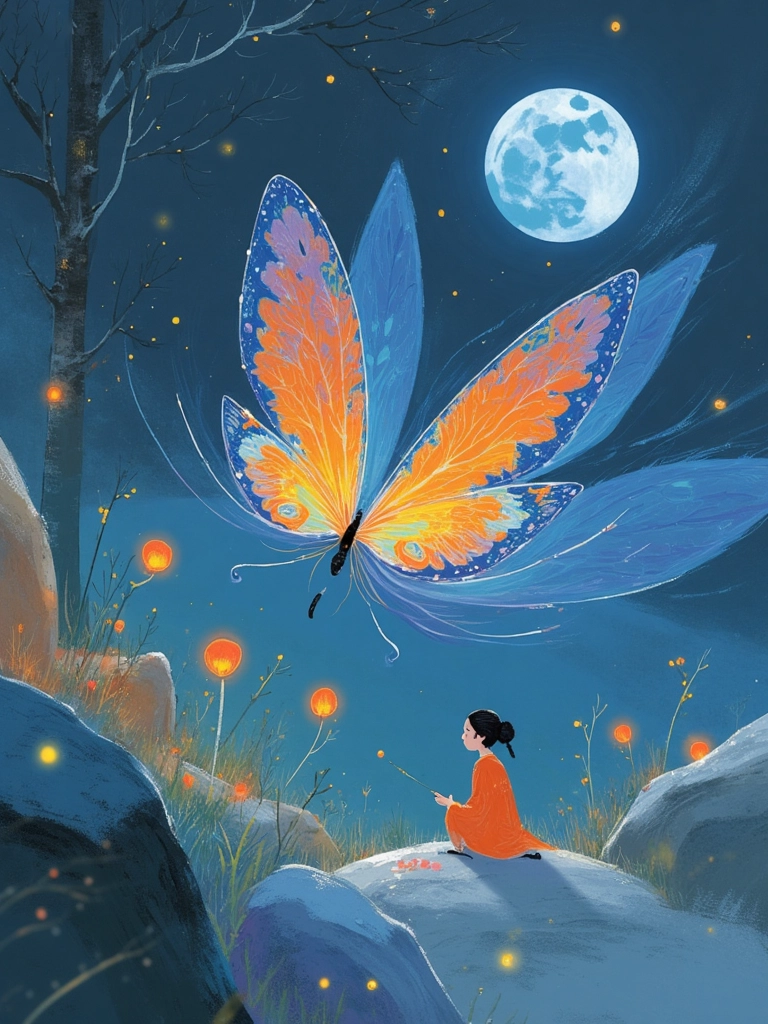栩栩如生

The ancient Chinese philosopher Zhuangzi (庄子) once recorded a story in his writings:
"Once, Zhuang Zhou dreamed he had become a butterfly—vivid and lifelike, truly a butterfly. He was so carefree and joyful that he forgot he was Zhuang Zhou."
In the dream, Zhuang Zhou transformed into a beautiful butterfly, more graceful than a real one, fluttering through the air with elegance and vitality. He felt incredibly happy and free, entirely forgetting about the existence of Zhuang Zhou himself.
Let’s review this idiom:
- Idiom: 栩栩如生
- Pinyin: xǔ xǔ rú shēng
- English Translation: vivid and lifelike
- Extended Meaning: Used to describe how vividly and realistically a person, animal, or object is portrayed—especially in literature, painting, or sculpture—so real that it seems to come alive.
人物介绍 (Character Introductions):
- Zhuangzi (庄子) – Zhuangzi, also known as Zhuang Zhou, was a renowned Daoist philosopher who lived during the Warring States period (around the 4th century BCE). He is best known for his work Zhuangzi, a foundational text of Daoist thought, filled with allegories, paradoxes, and imaginative stories that explore the nature of reality, freedom, and perception.
- King Xiang of Chu (楚襄王) – King Xiang of Chu was a ruler of the State of Chu during the Warring States period (reigned 298–263 BCE). His reign was marked by internal instability and challenges from rival states. He is often mentioned in historical and philosophical texts for his interactions with advisors and scholars.